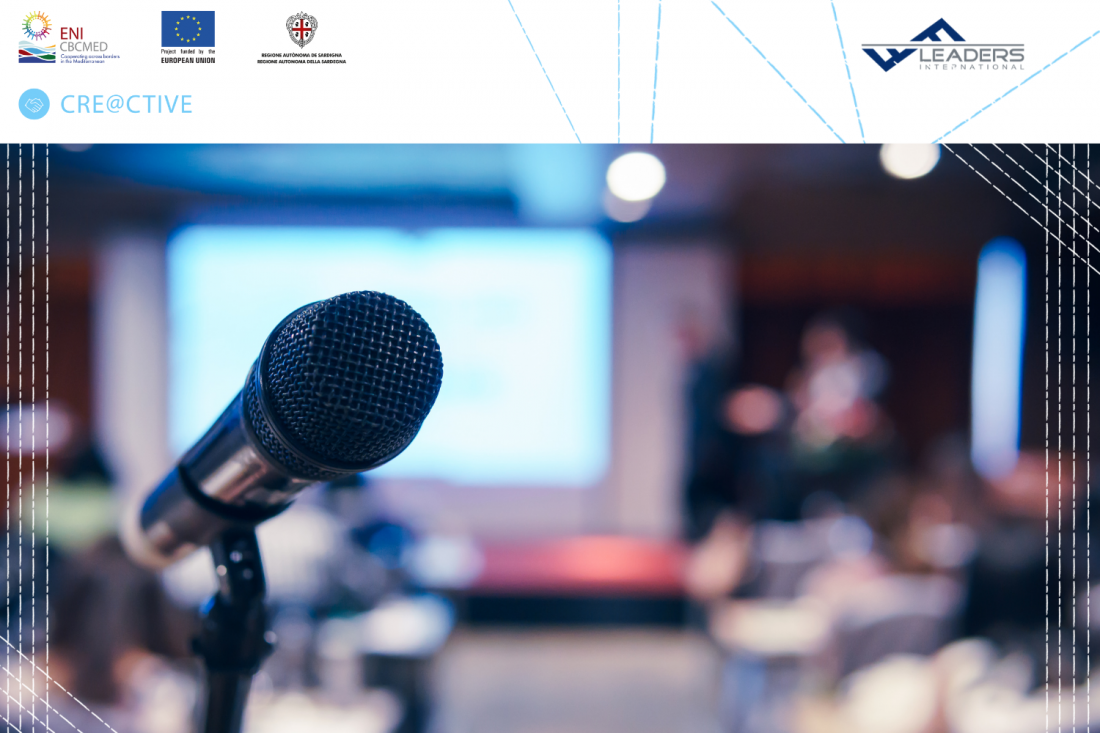CRE@CTIVE in Palestine launches the engagement seminar on traditionnal sectors in Ramallah

On November, 30th Leaders International, one of the Palestinian partners of CRE@CTIVE, will host a virtual seminar to explain the CRE@CTIVE Mediterranean project and involve all essential stakeholders from the textile, apparel, leather, and footwear industries.
Leaders International will discuss the results of market analysis done on the targeted industries, introduce the design of the creative lab that will be created in Palestine, and promote the project's Call for Applications during the engagement seminar.
The Engagement Seminar will bring together MSMEs, students, and designers to actively participate in the emerging discussions on project implementation.
Other Mediterranean partners are holding engagement seminars to promote their creative laboratories, which include micro, small, and medium enterprises (MSMEs) and cultural and creative sectors (CCIs).
Additionally, six creative labs will be created in the partner countries to provide the needed tools and space for small-scale production, knowledge transfer, and creativity for innovators, designers, MSMEs, and students. Project beneficiaries will be able to access the services offered by cross-border labs to maximize their benefit.
CRE@CTIVE comes at a crucial turning point to assist and develop traditional industries that have suffered significantly during the economic stagnation caused by the pandemic, especially since these sectors are already facing many challenges due to the increasing global competition from other regions of the world.
"CRE@CTIVE - Innovation for bringing creativity to activate traditional sectors in the MED Area" is an EU-funded project implemented in six partner countries: Spain, Italy, Tunisia, Palestine, Egypt, and Jordan under the ENI CBC MED Program. Its goal is to strengthen the Mediterranean Textile, Footwear, Leather, and Clothing sectors by incorporating creativity as an integral component of manufacturing and using it as a catalyst for economic progress. The project has a total budget of 3.2 million euros, with the European Union contributing 2.9 million euros (90%).









